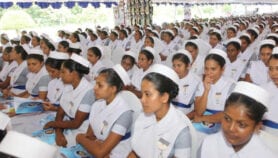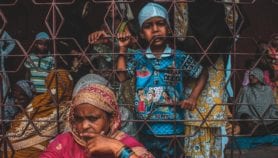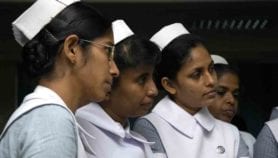By: Katie Mantell
Send to a friend
The details you provide on this page will not be used to send unsolicited email, and will not be sold to a 3rd party. See privacy policy.
The US National Institutes of Health (NIH) has launched a US$15-million research programme that aims to address global health differences by encouraging North-South collaboration in human genetics research.
The programme, known as the International Collaborative Genetics Research Training Programme, and backed by the World Health Organisation, will provide funds during the next five years for training postgraduate researchers from the developing world. It will build on current partnerships between scientific institutions in the North and South in human genetics.
The money will be given to institutes in developed countries to allow them to increase collaboration with developing-world researchers by providing training, both at the developed-world institute and in the researchers’ home country.
The idea is to create a critical mass of scientists, health professionals and academics with human genetics expertise and a sustainable research environment in developing countries.
“Through the programme’s partnerships, we will advance human genetics research while enhancing the limited but growing technical capacity in genetic science in developing regions of the world,” says Gerald Keusch, director of the Fogarty International Center, one of eight NIH institutes financing the initiative.
Applications are currently invited from developed country organisations such as universities, health professional schools and research institutions, which have an ongoing research relationship or high potential for the development of collaboration with a human genetics researcher in the developing world.
In addition to training in genetics, applicants must include plans for training on the ethical, social and legal implications of performing genetics research in low- and middle-income countries.
For more details, see SciDevNet’s grants page
© SciDev.Net 2001













